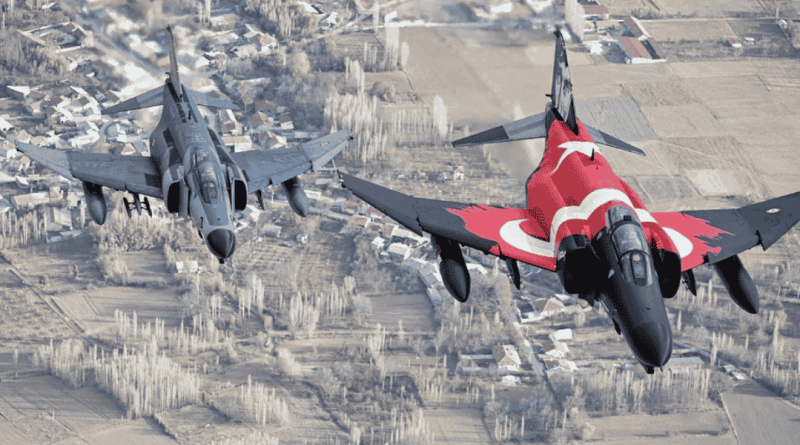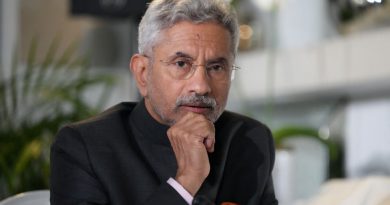Turkey Denies Sending Arms to Pakistan as India-Pakistan Tensions Flare, Confirms Cargo Plane Landing
Ankara — Turkish C-130E military transport plane on Monday touched down in Karachi, setting off rumors that Turkey, a key ally of Pakistan, might have delivered military supplies — an alarming development in a region already brimming with unease.
Reports quickly circulated across social media, fueled by open-source intelligence (OSINT) trackers, that the aircraft had flown over the Arabian Sea before landing in Pakistan. Some Indian media outlets went further, alleging that as many as six Turkish C-130Es had landed, suggesting an urgent shipment of arms and ammunition.
The claims, amplified on platforms like X (formerly Twitter), sparked widespread concern among Indian military analysts, academics, and geopolitical observers. The idea that a NATO ally could be reinforcing Pakistan’s military at a time of heightened regional volatility seemed, to many, a troubling sign.
However, Turkish authorities swiftly sought to quash the rumors. In an official statement, Turkey’s Directorate of Communications clarified that the aircraft had stopped only for refueling purposes and had subsequently continued its journey. “Speculative news made outside of the statements of authorized persons and institutions should not be relied upon,” the statement emphasized.

Still, in the current climate, clarifications have done little to dispel suspicions.
A Region on Edge
The controversy comes against the backdrop of a deadly terror attack in Pahalgam, Kashmir, which reignited long-standing animosities between India and Pakistan. In the aftermath, Pakistan’s military was reported to be on high alert, wary of potential retaliatory strikes similar to those India launched after the 2016 Uri and 2019 Pulwama attacks.
Open-source visuals posted on social media appear to show Pakistan repositioning military assets within the Kashmir region and activating key air bases at Pensi, Skardu, and Swat. Observers view these moves as preparations for potential escalations.
Adding to the complexity, there are also unconfirmed reports suggesting that China, Pakistan’s other key ally, may be supplying the long-range PL-15 missile to Islamabad — a development that Beijing has yet to address publicly.
A Bond Forged Over Decades
The defense relationship between Pakistan and Turkey is not new; it is deep-rooted and resilient. The two nations have strengthened military ties over decades, often viewing each other as indispensable partners in a turbulent neighborhood.
In 2021, a formal defense agreement between the two countries expanded cooperation into new arenas, including joint arms production. According to the Stockholm International Peace Research Institute (SIPRI), Turkey directed roughly 10 percent of its total arms exports to Pakistan between 2020 and 2024, underscoring the breadth of this partnership.
Drones Take Center Stage
A major pillar of Pakistan-Turkey defense collaboration lies in drone warfare. Turkey’s rise as a powerhouse in unmanned aerial vehicle (UAV) technology — notably the combat-proven Bayraktar TB2 drones — has transformed Pakistan’s military capabilities.
The Bayraktar TB2 first gained international fame during the 2020 Nagorno-Karabakh conflict, where Azerbaijan leveraged the drones to overwhelming effect against Armenian forces. Pakistan, seeking similar advantages, acquired both the TB2 and the more sophisticated Bayraktar Akinci drones.
By 2023, Islamabad had received its first batch of Akinci UAVs — high-altitude, long-endurance drones equipped with an array of precision munitions. These systems have allowed Pakistan to expand its strike capabilities across domestic and regional theaters, including operations against militants along its borders with Afghanistan.
Combat Aircraft and New Horizons
The Turkey-Pakistan relationship extends beyond drones into the realm of manned aviation. The two countries are collaborating on the KAAN fifth-generation stealth fighter program, with Pakistan expressing strong interest in procuring — and possibly even co-producing — the new jet.
This ambition builds on an earlier collaboration: Turkey’s role in upgrading Pakistan’s fleet of F-16s. Under a 2009 contract, Turkish Aerospace Industries (TAI) modernized 41 Pakistani F-16s, significantly extending their lifespan and boosting avionics and systems capabilities.
Ankara’s support hasn’t been limited to fighters. Discussions are also underway on co-developing new helicopter models, highlighting the broadening scope of the two countries’ military-industrial ties.
Advanced Weaponry and Naval Strength
Beyond the skies, Pakistan’s defense procurement from Turkey spans munitions and naval assets. Islamabad has reportedly acquired Turkish anti-tank guided weapons and cutting-edge cruise missiles like the AI-enabled Kemankeş, designed to pair seamlessly with its new drone fleet.
Naval cooperation has been equally robust. In August 2023, Pakistan took delivery of its fourth and final MILGEM-class corvette, the PNS Tariq, a product of Turkish design and engineering. These sophisticated warships bolster Pakistan’s surface fleet at a time when maritime competition is growing across the Indian Ocean.
Turkey has also played a key role in modernizing Pakistan’s Agosta 90B-class submarines, upgrading critical systems such as sonar, radar, and combat controls. Meanwhile, the PNS Moawin — Pakistan’s largest naval ship — stands as a testament to Turkish-Pakistani industrial collaboration, designed by Turkey’s STM and built locally in Karachi.
A Fragile Moment
Whether or not the Turkish cargo plane was carrying arms — and Turkey’s denial suggests it was not — the incident highlights how quickly rumors can inflame an already volatile situation.
With both India and Pakistan maintaining substantial nuclear arsenals and a long history of conflict, the stakes could not be higher. Any miscalculation or misunderstanding, especially involving external powers like Turkey or China, risks spiraling into a broader confrontation.
For now, the international community watches and waits, hoping that clarifications, not escalations, define the coming days.



